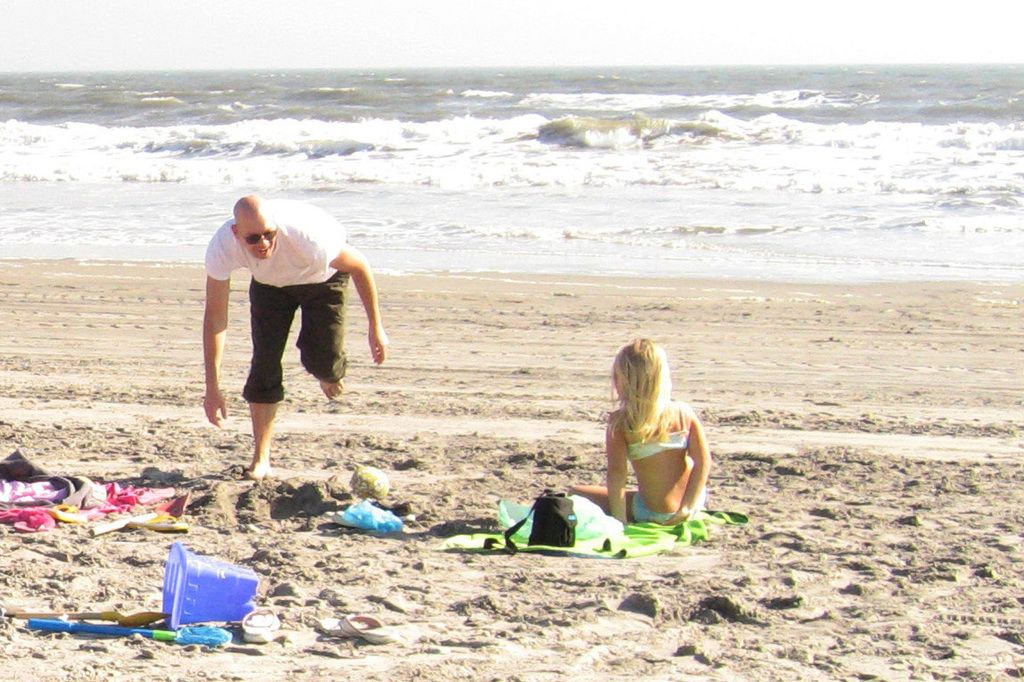She'll Rule Bellevue Castle: The Case for a Female Federal President by 2027
A Government Leader Expresses Ambition: A Female Figure for Bellevue Palace by 2027 - The rationale behind a woman's position in Bellevue Castle in 2027
by K. J. Schadewald* ≈ 4 Min Read*
Recent remarks from Carsten Linnemann on "Miosga" sparked intrigue: "I'd be chill if we had a lady Federal President pronto. Kinda think a lady Fed Prez would do Germany right." But is this serious talk or just damage control in a sea of male dominance in key government positions? After all, our new federal government seems to favor chaps, while women often find themselves relegated to secondary roles. In the coalition committee, the country's most crucial political body, only one lady holds a seat.
Can a woman finally take up residence in Bellevue Castle, the official abode of the German Federal President, by 2027?
Former Chancellor Olaf Scholz already voiced this sentiment during a stern interview last year: "I'd be stoked if we elected a lady to Bellevue Castle in '27." And there are heavyweights like Bundestag President Julia Kloeckner working to make this declaration more than just hot air. Kloeckner bluntly states the situation: "Since '49, we've got twelve dudes in the Federal President seat. That ain't equality, dude. Time for regularity, even at the highest office." Kloeckner acknowledges progress, stating that coalition partners are now considering the option of a female candidate, calling it a long-overdue move.
But Kloeckner isn't the only one vocalizing urgency. Green faction leader Britta Haßelmann asks critically: "Why now? And seriously, why are we even discussing this over 75 years after the Federal Republic's founding? A lady oughta duke it out for the top gig, fer sure."
Women in Politics: Just Talk So Far
Haßelmann also calls out the past routine of nominating male candidates regardless of their strength, asserting it's high time to put this flawed practice to bed. She emphasizes further: "Ladies make up more than half the population. Where ladies are absent, their perspective is also absent."
Another politician who's an authority on her field, defense (a domain long perceived as a man's realm), is Marie-Agnes Strack-Zimmermann. The FDP politician and long-standing defense committee chair suggests a solution to Haßelmann's issue: "Why not nominate only ladies in the race in '27? There are enough potential candidates that even the blokes should've caught on by now that not every bloke is suited for this."
The Beauty Paradox: Looks Matter for Women, Not Men
Strack-Zimmermann highlights the double standards in public life: "If a lady under-performs or looks unfavorable on the box, it stirs drama, while some lads strut their hairy calves on screen in socks." This inconsistent treatment has repercussions: "Ladies learn young to clam up and assert themselves, but eventually, many lose the desire for this political stage." A lack of drive in some women weakens the bench of promising talents and affects the gender image of young people.
The Union and Its Stereotypes of Women
A Long-standing Inequality Illustrated
Haßelmann also views the new power dynamics of the federal government as an example of persistent inequality: "The delay here shows just how overdue such a statement is. You can see it in the Federal Chancellor's inner circle. He's all guys, and there's just one lady in the coalition committee, from the SPD. In the year '25."
While Haßelmann's alliance, the Greens, is praised for consistently promoting women, Strack-Zimmermann pushes the discussion further: "The Union's made history by having the first Chancellor, but it doesn't appear to have had much impact within its own party." Strack-Zimmermann emphasizes the importance of female role models for the younger generation: "A lady leading the nation would be a role model for young ladies, but also for young gents, because it'd shape their gender identity early on."
Potential Candidates: Who Could Make History?
The discussion about a lady in Bellevue Palace is not theoretical - potential candidates' names are already circulating. Ilse Aigner, the current President of the Bavarian Landtag and former Federal Minister of Agriculture, has been mentioned. The CSU politician is seen as a conciliatory figure with wide popularity across party lines. Furthermore, persistent rumors point to a side agreement in the coalition contract that gives the CSU the right to propose the Federal President.
Julia Klöckner, who also held the office of Federal Minister of Agriculture like Aigner, is also a contender. Karin Prien, the Minister of Education and Families in Berlin, and the deputy CDU federal chairperson with Jewish roots, could bring a progressive profile to the position.
Beyond politicians, societal voices from various media are also under consideration: Dunja Hayali, a TV moderator with Iraqi roots and an outspoken advocate against racism, could bring societal clout to the role. The author Carolin Emcke and the Jewish publisher Rachel Salamander, who embody values like diversity, courage, and conviction, are also being discussed.
Could Strack-Zimmermann Become Federal President?
The name of Marie-Agnes Strack-Zimmermann also surfaces often. When asked if she envisioned such a role for herself, the Europe politician chuckles: "Of course. I'd be less comfortable, some may find it challenging, but always clear, candid, and no-nonsense, 'cause what we don't require now are fluff or even worse political clichés."
Whether a woman occupies the Federal President seat in '27 hinges primarily on the Union. Since the Federal Assembly, which consists of the members of the Bundestag and an equal number of members elected by the state parliaments, makes the decision, if the Union refuses to cooperate, another man will likely reside in Bellevue Palace after Steinmeier.
- If a woman were to be elected as the Federal President in Germany in 2027, policies such as policy-and-legislation focused on women's health (womens-health) and general-news coverage could potentially be influenced by her perspective, leading to a more balanced and comprehensive approach.
- In the context of science and vocational training, having a female Federal President could inspire more EC countries to invest in vocational training opportunities for women, encouraging the development of a skilled workforce in health-and-wellness and other industries.
- The political discourse surrounding the possibility of a female Federal President in Germany in 2027 is also relevant to the larger global discussions about politics (politics), as it highlights the importance of gender equality in key government positions and serves as an example for other nations to follow.










